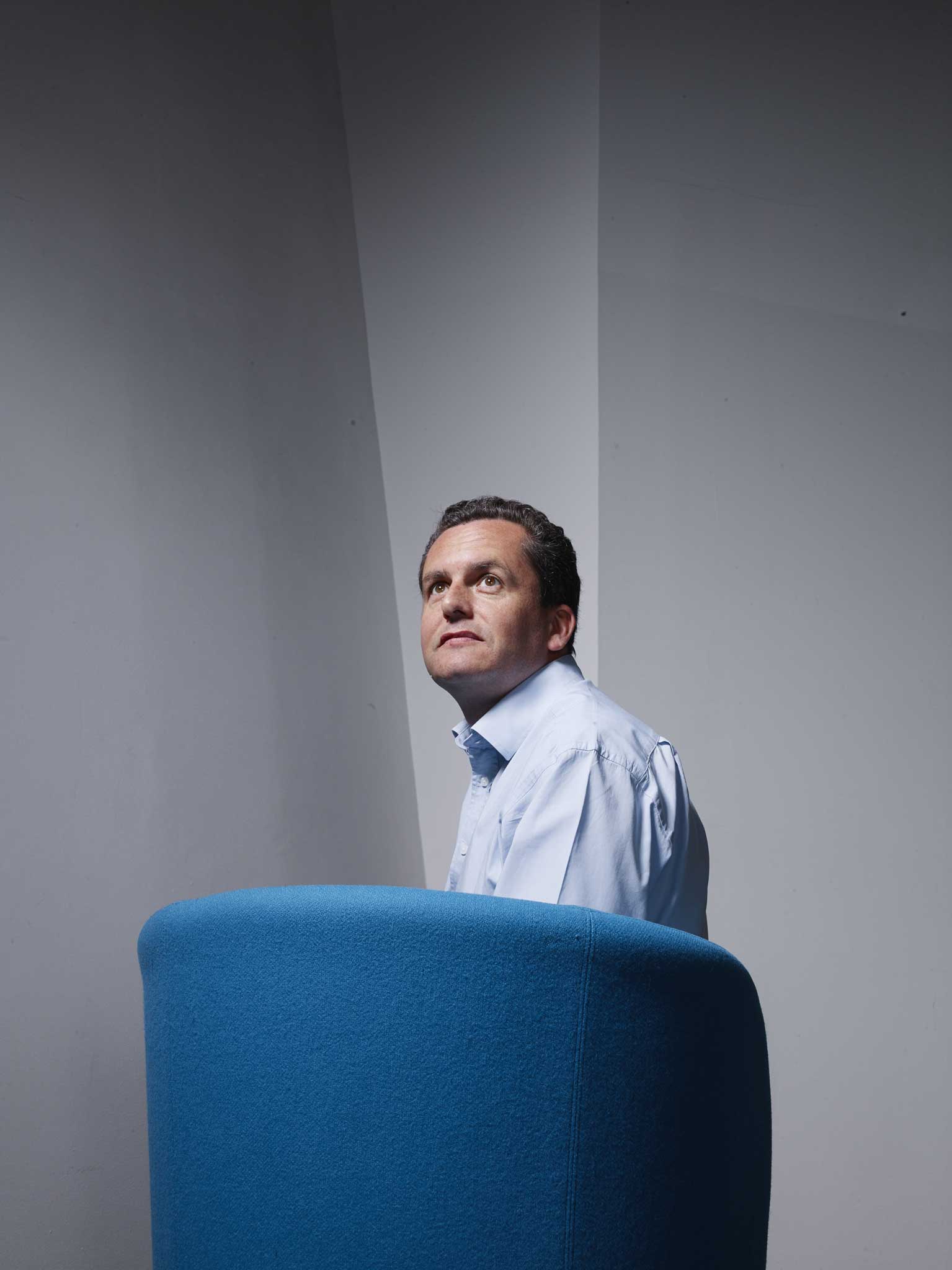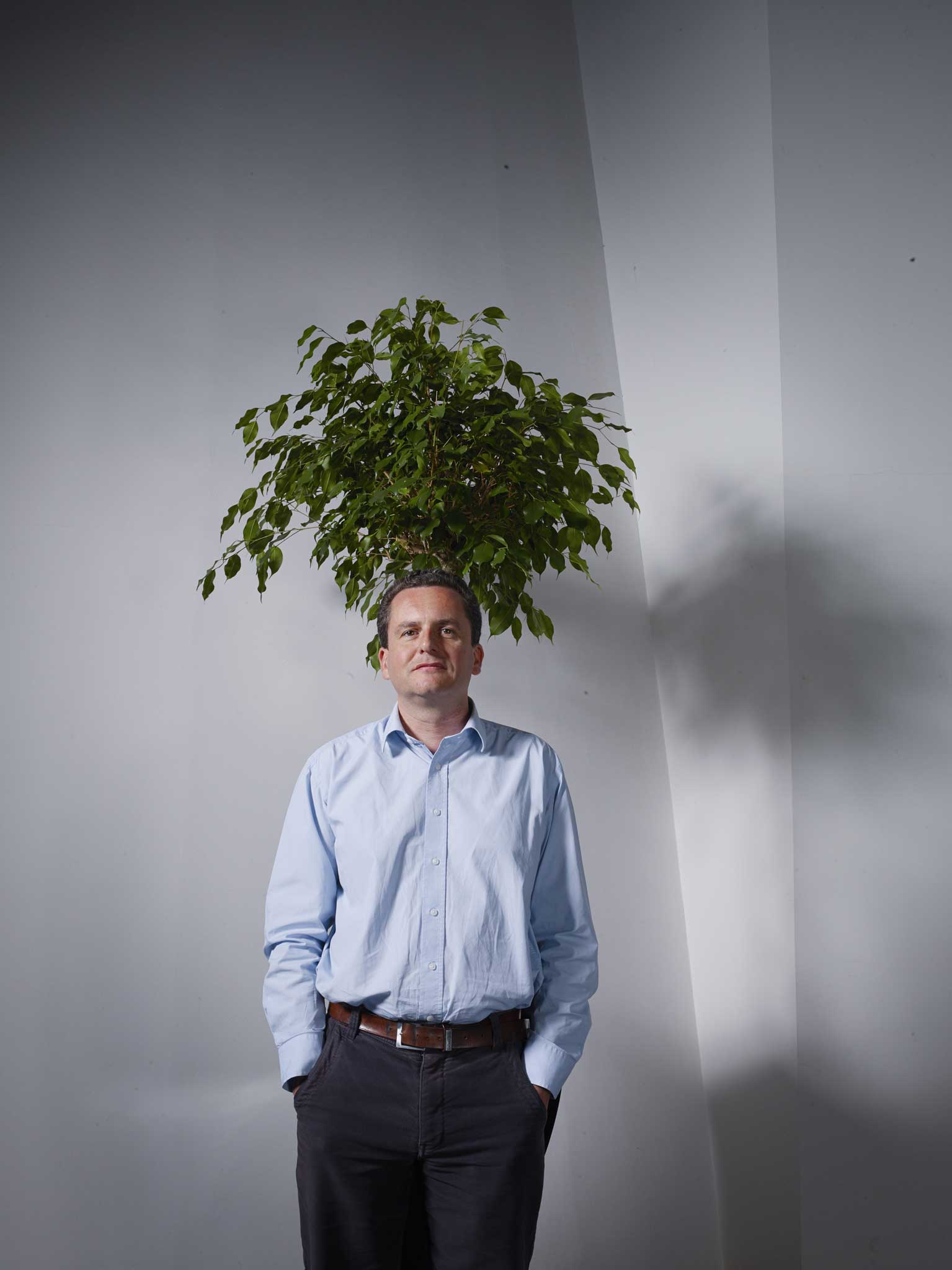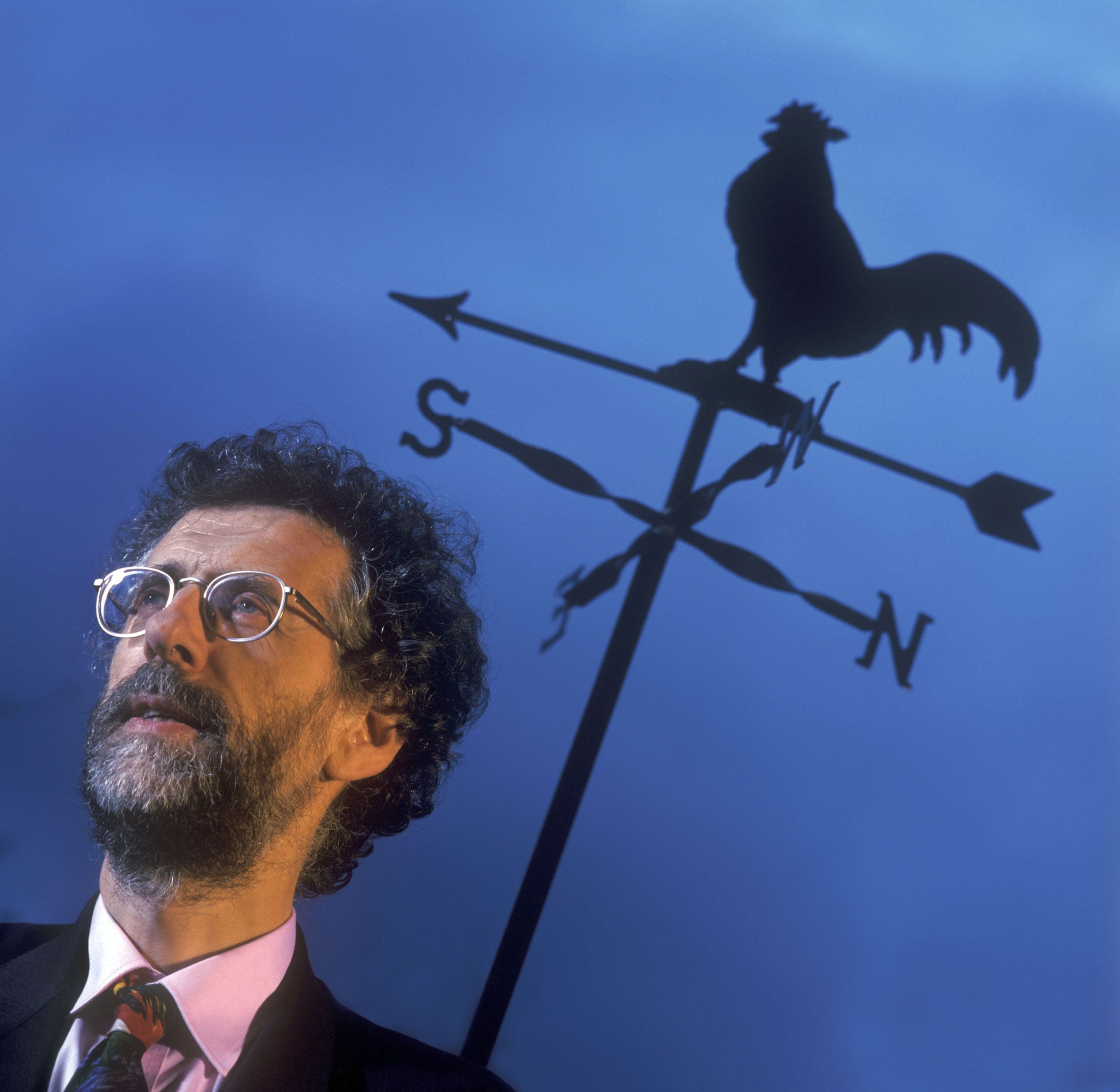Weather wars at the Met Office: Is it going to be a 'barbecue summer' this year?
Adam Scaife has a tricky job: long-range forecaster at the Met Office

On the hottest day of the year so far, rain spatters the windows of the library at the Met Office in Exeter. Something called a 'cut-off vortex' over the Atlantic is feeding unstable air across the west of Britain, depriving Devon of the sunshine keeping sleeves short elsewhere. Inside, behind shelves of books and records, a framed edition of The Times includes four short lines. The date: 1 August 1861.
General weather probable during next two days in the-
North–Moderate westerly wind; fine.
West–Moderate south-westerly; fine.
South–Fresh westerly; fine.
That was it – the first published weather forecast, in 23 words. No map, no temperatures, no smiling sun wearing dark glasses (no East!) yet the idea that the behaviour of the heavens, of all things, could be predicted at all came as such a shock to Victorian Britain that the printing of controversial public forecasts would soon cease for a decade.
More than 150 years later, symbols of what the forecasting game has become are concealed inside my bag like meteorological contraband: copies of today's Daily Star and Daily Express. "Britain to bake in SIX-week heatwave: RECORD SUMMER ON WAY," screams the Star's front page. The story inside reveals nothing to support such a forecast. The Express, typically the most reliable follower of weather news (read on to discover just how reliable...) plays it cool with: "All smiles for Britain's early blast of summer."
The leap from those tentative lines in The Times to almost daily "shock" forecasts reveals how a national obsession has reached the highest levels since records began. As extreme weather in the past few years makes ever more urgent the need for accurate forecasting, advances in meteorology and the means of communicating it only heighten our interest – and expectations. As a result, a sort of weather-industrial complex has whipped up, involving media for whom dramatic weather stories increase sales, and anti-establishment forecasters who trade in superlatives.
These alternative "experts" don't reveal their methods, nor are they peer-reviewed. One refuses to talk to me. Another responds to questions only with a warning about legal action. A third – the brother of a Labour MP – does talk at length after initially suggesting: "I doubt if your 'green' paymasters want to hear it." They all appear to have two things in common: climate-change scepticism; and a mistrust of Met Office scientific methodology.
This vortex of misinformation and recrimination is a growing problem for Professor Adam Scaife, who says "mischievous media" and the forecasters they quote present a threat to science – and all of us. As the Met Office's head of monthly to decadal prediction, Scaife is Britain's leading long-range forecaster, a job that, he says, entails "putting your neck on the block every day. You can make a good forecast nine times out of 10 and no one says much. It's the one bad forecast that people notice." He has two decades of expertise, and winces in the staff café when presented with a Daily Express headline from last autumn.
"WORST WINTER FOR DECADES", the front page reads. It was 12 October, and forecasters warned of "record-breaking snowfall", blizzards – a "horror freeze". The person quoting them was Nathan Rao, one of the most prolific journalists in British newspapers. In the past year, the Express has devoted 68 front pages to weather, 61 of them written by Rao. He quotes the Met Office frequently but favours two other forecasters: Jonathan Powell of Vantage Weather Services (VWS); and James Madden of Exacta Weather.
"We are looking at a potentially paralysing winter, the worst for decades," Powell told Rao. Madden added: "A horror winter scenario is likely to bring another big freeze with copious snow for many parts." Rao himself wrote: "The forecast of a harsh winter comes amid fears that millions of pensioners will face an 'eat or heat' dilemma." The outlook only got worse in November when Rao followed up with a similarly sourced warning of "100 DAYS OF HEAVY SNOW". Thousands of elderly people faced death, Rao warned. Mercifully, there followed zero days of snow for most of us and one of the mildest winters on record.

Powell says on his website that he integrates data from a "variety of outlets" into "VWS's own system (originally the PWS system), to generate forecasts…" PWS is Positive Weather Solutions, the company Powell ran until January 2012, when George Monbiot, the environment writer, revealed that his team of "forecasters" had appeared elsewhere online as experts in, among other things, snoring, spanking and air purification (they were stock images of models). Powell soon reappeared under the Vantage banner, without a team or contact details. I ask Rao to put me in touch, but he says Powell has declined to talk to me. Rao himself is initially willing to talk, but then his bosses say he can't.
At ExactaWeather.com, James Madden says his forecasts, made since 2009, "are produced on a number of personal observations and calculations", including "historical weather patterns from my own unique collective data". As well has having a hotline to the Express, he sells long-range forecasts to the public. While waiting for him to answer my questions by email, I buy his summer reports, reduced from £10 to just £2.99. In summary: generally wet and windy with a heatwave in early August. Madden then responds only to accuse me of having "lied" when I earlier said Rao had suggested I speak to him (Rao did suggest this) and warns me that he will be forwarding my emails to his lawyers.
It is perhaps not surprising that the Daily Express and others are content to print and inflate such bold prophecies, often without caveats. But, the Met Office says, weather should not be viewed as a game. Farms, supermarkets, councils and Cornish B&Bs are among those people who rely on and invest in good, measured forecasting to inform key decisions – about harvesting, say, or the number of disposable barbecues to order. Forecasts of extreme weather understandably cause concern. Switchboards in Exeter went crazy on the day of the "horror freeze" story. "Most calls were from elderly people, the vulnerable, charities," says Laura Young, who works in the Met press office. "They were panicking."
Scaife laments the fact that "there is nothing to stop people who are not scientists putting out disingenuous forecasts to generate media headlines", and believes forecasting should be regulated. I show him another recent Express story that reveals another challenge in the modern business of weather. A story (by Rao, naturally) headlined "3 MONTHS OF SUNSHINE" only supports its claim that "summer weather records [are] at risk of being obliterated" with a quote from Coral, the bookmakers: "The odds suggest that we could be in for the hottest summer on record," its spokeswoman Nicola McGeady said.
I call McGeady. She says Coral took £210,000 of weather bets last year, way over double the £85,000 taken in 2008. "That kind of coverage is always welcomed because people know that they can have a bet," she says. A quote in the Express will trigger a flurry of bets, but what equips bookies to predict the weather? "Research," McGeady says. "We look at the BBC forecast for upcoming days and stats and history to establish the odds… We never claim to be forecasters ourselves, and never take bets on disasters. It's just a bit of fun."
Away from the bookies and the one-man weather desks, there are limits on what Scaife can predict, especially in summer. "All we can do is predict the risk, say, of a hot summer," he says, declining to suggest what might be in store this season. "We run a whole bunch of forecasts – typically 40 per month – then look at how many land above or below the average conditions. If three-quarters land above, then the chance of a hot summer, say, is 75 per cent. But that means there is a 25 per cent chance that it won't be. To pick on one of these forecasts is as daft as banging on Ladbrokes' door if the favourite didn't come in."
And yet they bang. In February the Express went so far as to celebrate its winter predictions. "Experts" (Powell and Madden) criticised the Met Office for failing to match their future-gazing skills. "We always maintained it was going to be a wild winter with very high precipitation," Powell said, not dwelling on his "copious snow" prediction. It is true that the Met Office's three-month outlook, published late last November, proposed a potentially dry winter, but close reading reveals how measured that prediction was. "The probability that UK precipitation will fall into the driest of our five categories is around 25 per cent and the probability that it will fall into the wettest category is around 15 per cent," it reads.

The Met Office is partly to blame for its own, damned-if-it-does position. Two words explain why: "barbecue summer". At the end of April 2009, its chief meteorologist at the time took the unusual step of calling a press conference to deliver good news after two gloomy summers. He explained that there was an 80 per cent chance of average or above-average temperatures, but the press went wild when he started talking about barbecues. July was then one of the wettest on record and people got angry. "You can give some criticism to the way it was communicated, because the phrase was obviously going to run and inflate," Scaife concedes.
But the biggest stick used to beat the Met Office? Climate change, sceptics of which tend to talk loudly and angrily. They include Powell, Madden and the Daily Express but none, perhaps, are as vociferous as Piers Corbyn, brother of Jeremy Corbyn MP, and another independent forecaster. The physicist, who has run WeatherAction in south London since 1988, calls climate change "delusional nonsense" and says his understanding of "the essential influences between the Sun and Earth, involving magnetic connections" make him more skilled than the Met Office. He sells his long-range forecasts to similarly sceptical clients ("mainly farmers") and won't talk about his summer forecast, only offering: "It's going to be very good in the first half of June, then it's dramatically downhill."
Scientists who believe in anthropogenic climate change, Corbyn adds, are "science deniers" who are complicit, with the UK government, in a conspiracy to justify higher taxes and rising energy prices orchestrated by Qatar and "big oil".
Scaife, who has thick skin and a thicker file of letters from sceptics (few of them nice) is mild-mannered but can't hide his frustration. "Maybe because these people are not part of the knowledgeable meteorological community, they adopt a contrarian position," he says. "But to give them equal airtime, as often happens, is distorting what the real picture is. The vast majority of qualified and respected scientists in this field agree that man-made forces are driving a warming globe."
Scaife has spent years using the IBM supercomputers in the basement here to achieve a huge breakthrough in long-term, winter forecasting (see below) – but why does summer remain so fraught? "It's not as clear what is driving weather," he says. "We need to do more research to understand that." However advanced forecasting becomes, he adds, "I'm never going to be able to tell you whether or not your wedding date in three months' time is going to be sunny – it's absolutely impossible. Quantum mechanics is easy compared to meteorology."
Paul Davies is now the chief meteorologist at the Met Office. He gives me a tour of the operations room, where desks cover shipping, aviation, space and, in a new development, social media. Tweets that mention the Met Office flash up on large screens. "This weekend saw the highest number of shirtless dickheads of the year so far, met office confirms," reads one. The real action happens at the centre, where Eddie Carroll compiles the two-to-five-day forecasts we all consume. He's pretty relaxed about the thundery showers moving north, warning of some heavy downpours during the week. On my way home, Rao tweets the Express's interpretation, quoting Powell. The headline: "SHOCK FORECAST: Worst thunderstorms in 50 years to rip through Britain THIS week". I can't say I wasn't warned.
Cold war: How the Met Office cracked winter forecasting
By Professor Adam Scaife
1.The history
When you look at history you see that something is pushing winters into being mild, wet and stormy, or cold with lots of snow. There are things which influence the odds. We've had theories about what they are, and over the past 10 years we built a computer model to include them.
2. The factors
Subtle changes in the Atlantic Ocean influence the jet stream, which influences our weather. We also know the Pacific Ocean has a role. We then add other factors to [achieve] a bit more predictability, including atmospheric circulation in the Tropics, and changes in sea ice and the sun.
3. The model
Next, we add these drivers to what the weather is doing in November, at the start of winter, and set off 24 forecasts for the following three months. Then we average them. To find out if we're right, we go back in time by 20 years and ask, if we had had this new model at the start of winter 1992, and all subsequent winters, would it have given us accurate forecasts?
4. The eureka moment
We run the programme and there is this magical moment when the numbers stream up. When it spits out 62 per cent [probability that three-month forecast is correct], it's fantastic. For the first time, we can warn about extreme winters weeks ahead. It's something meteorologists have dreamt of for years.
Join our commenting forum
Join thought-provoking conversations, follow other Independent readers and see their replies
Comments
Bookmark popover
Removed from bookmarks